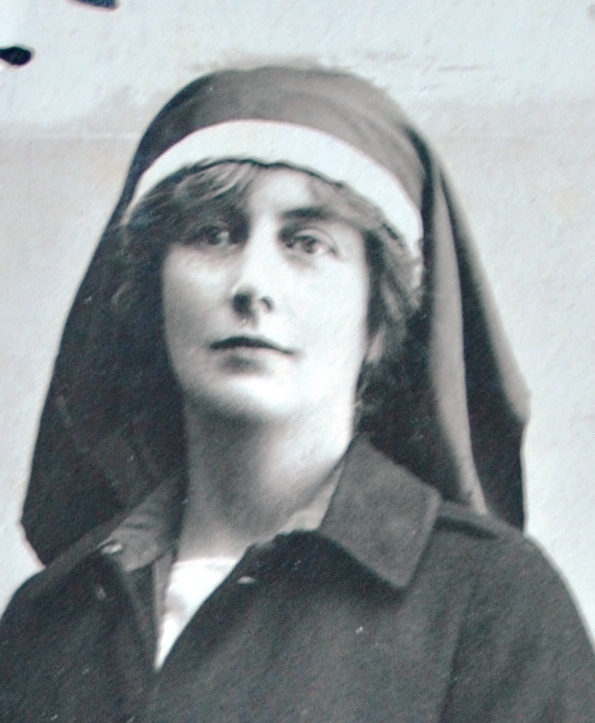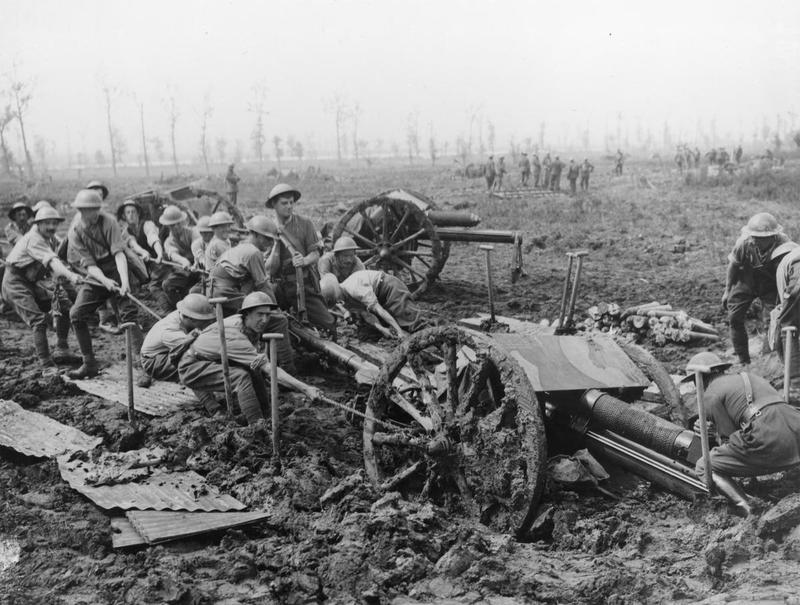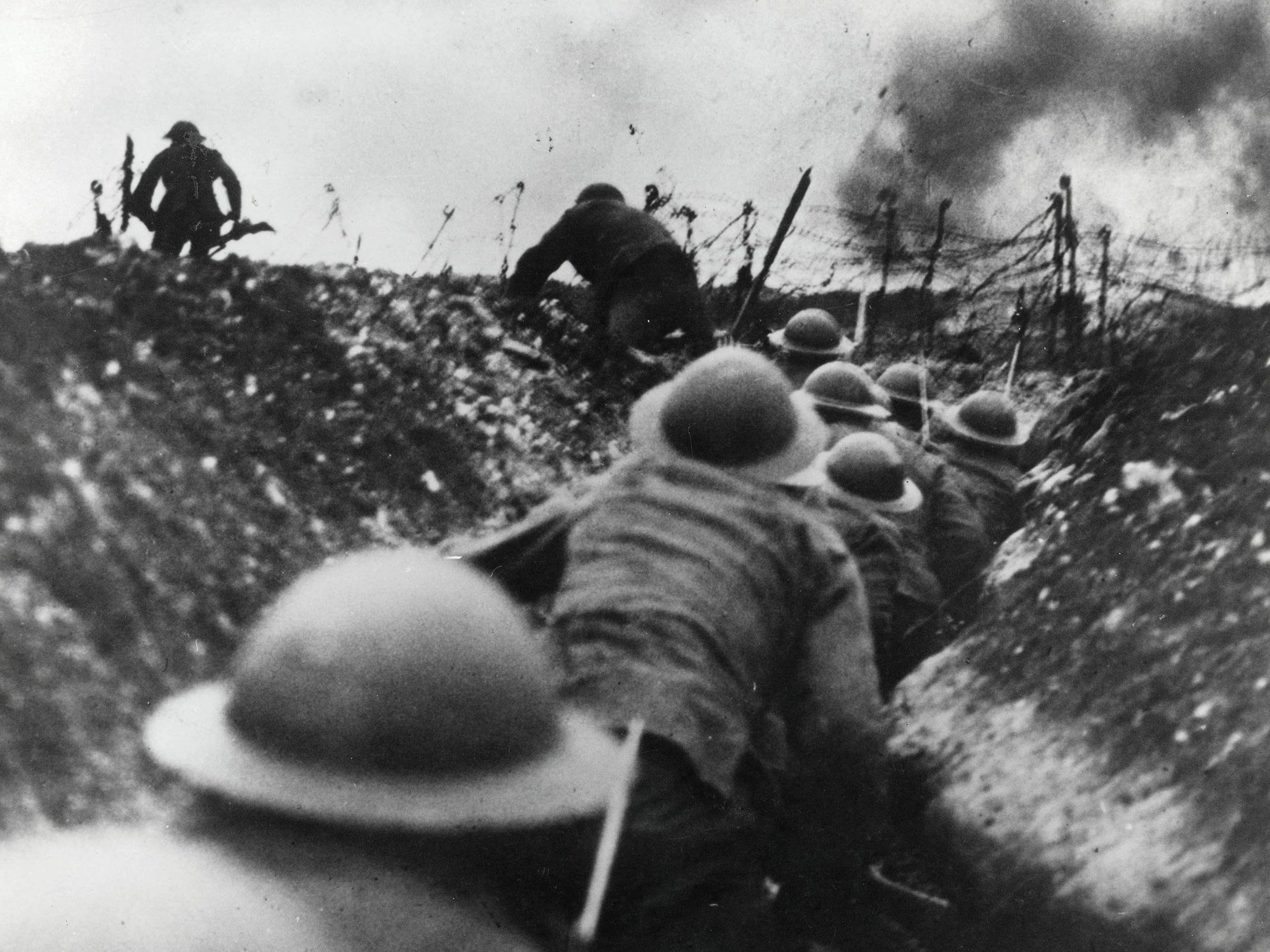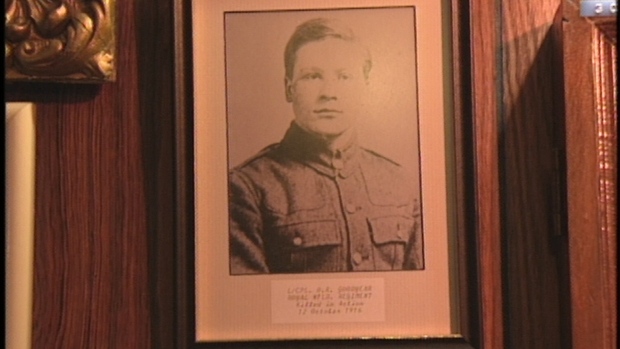‘A Lucifer, Prince of Darkness, Kind of Splendor
The Soldier’s First Battle
Special to The Great War Project.
(12-16 October) Occasionally visitors from a safe life in Britain visit the horrid battlefield in northern France.
They have no idea what they are about to see.
In mid-October a century ago, one of those visitors, of the British royalty, is Viscountess D’Abernon. She keeps a diary of her visit.

The Viscountess D’Abernon in nurses uniform.
“I left Paris full of eagerness and excitement to see the British Front,” she writes, “where up to the present, no women visitors had been allowed.”
On these October days a century ago, this policy is about to change. Reports historian Martin Gilbert: “Looking over the battlefield with her military escort, ‘we saw…the whole horizon come under a barrage of German fire.’”
“For more than an hour I watched the bombardment,” she writes. “Several of our aeroplanes came over, making for hangars, many miles behind, and tales were told of gallant deeds and especially of the prowess of a young fellow named Albert Ball, who had just brought down his thirtieth Boche [German] aeroplane. Ball is aged nineteen and lives to tell the tale.
“We stood for a long while riveted by the strange Satanic scene,” she continues, “but at last it was a relief to turn away. The ground on which we were treading, the shell-holes, are only broken patches of the battlefield of a short month ago.”
At this moment the Viscountess’s nephew is killed. She writes: “and on the grey horizon at this moment thousands of fellow country-men, their trenches the playground for shells bursting so thickly and continuously that her escort thought they must herald an impending attack.”

British artillery stuck in the mud of the battle for the Somme.
“The scene had a Lucifer, Prince of Darkness kind of splendor, but uppermost in my mind was a sense of the wickedness and waste of life…the lack of any definite objective commensurate with all this destruction, desolation, and human suffering.”
The Viscountess visits a Casualty Clearing Station, and she judges the conditions unacceptable: too few beds, and too small; too few blankets and coarse sheets.
“Special tents are set apart for abdominal wounds, for chest wounds, for eyes, for gas-gangrene, and of course separate tents for the Germans. Amongst these scenes one lonely figure, still on a forgotten stretcher, was lying with his face turned to the wall.”
“Unlike others he did not speak nor even look round as we passed through, and remains in memory a lonely pathetic figure.”
Conditions like these prevail for thousands of wounded soldiers still fighting at Verdun and the Somme for most of the year without success.

British soldiers go over the top.
Indeed on this day a century ago, British troops are in action on the Somme, “experimenting,” writes historian Gilbert, “with a creeping barrage, whereby the men advanced behind a curtain of explosions designed to pulverize the German wire and to stun the German soldiers.”
“More than one in ten of the attackers was killed as they moved forward too quickly or as shells fell short.”
Among the attackers is Lance-Corporal Raymond Goodyear. It is his first battle, and his story is just one of a million, and terribly difficult to tell.

Tribute to Lance Corporal Raymond Goodyear, killed October 12 1916.
As Goodyear ran forward, “he seemed to stumble and fall,” Gilbert writes. His captain turned to help him up, then saw that Goodlyear had been hit by a shell-burst just below the waist. The historian of the Goodyear family writes: “For a moment his round, blackened face looked puzzled beneath his oversized tin hat.”
“He didn’t seem to realize what had happened. He’d been ripped open as if he’d run into the full swing of an axe.”
His first battle.
Civilian and soldier alike witnessing and experiencing death on this never-ending battlefield of the First World War.

Very moving. What a terrible spectacle.
What better testimonial to the futility of war
Agonizing